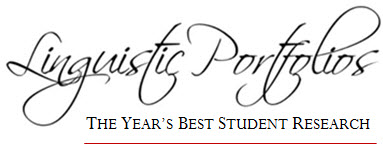
Abstract
It is estimated that 40% of world languages are endangered and that some will go extinct in the near future. There is not enough funding nor interest to preserve all of them. In response to this crisis, experts are experimenting with speech synthesis in the hope of reviving some of them. Their goal is to digitalize these languages and use processing methods similar to those used for Siri and Alexa. This paper highlights the challenges and opportunities in doing so. Beti, (ISO: 639-3-eot), a critically endangered language spoken in Côte d’Ivoire, West Africa, is used in this demonstration. The topics covered include speech digitalization, acoustic phonetic feature extraction, and speech coding. The techniques for synthesizing nasal and nasalized vowels are given careful attention because nasal and nasalized vowels constitute formidable challenges for speech synthesis.
Faculty Supervisor
Ettien Koffi
Recommended Citation
Dusosky, Scarlet
(2022)
"SPEECH DIGITALIZATION, CODING, AND NASAL(IZED) VOWEL SYNTHESIS: DEMONSTRATION WITH BETI, A CRITICALLY ENDANGERED LANGUAGE,"
Linguistic Portfolios: Vol. 11, Article 6.
Available at:
https://repository.stcloudstate.edu/stcloud_ling/vol11/iss1/6


